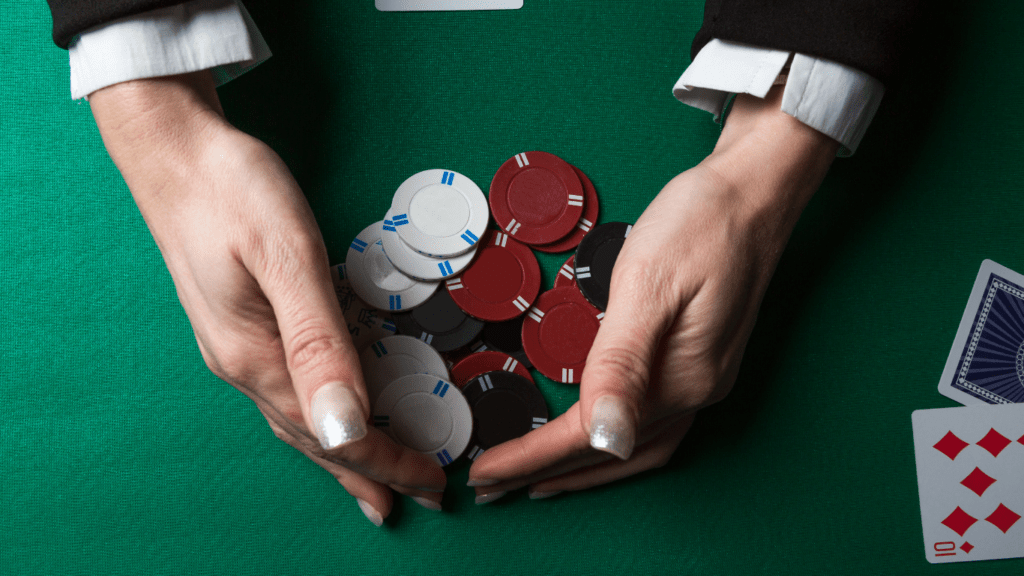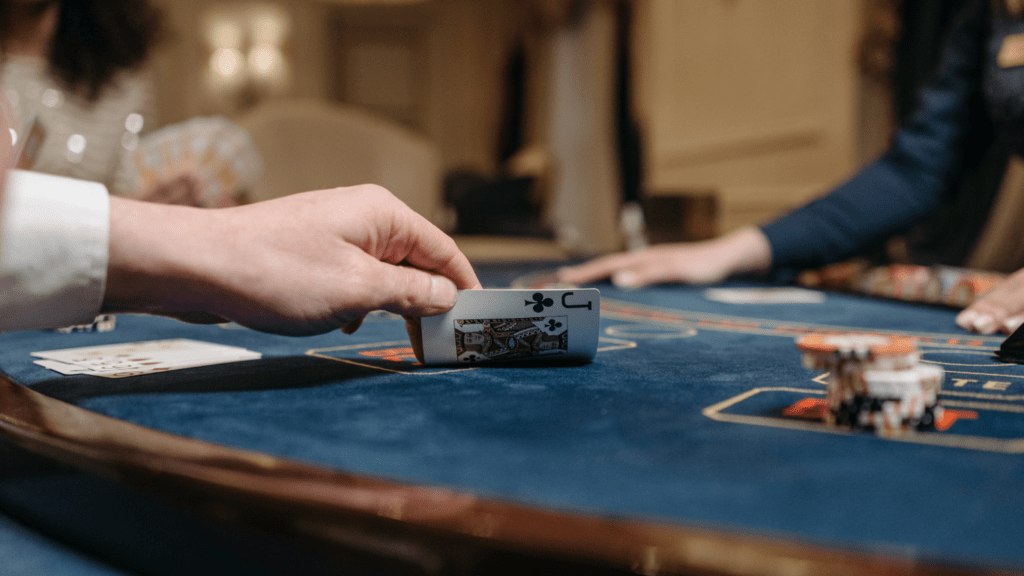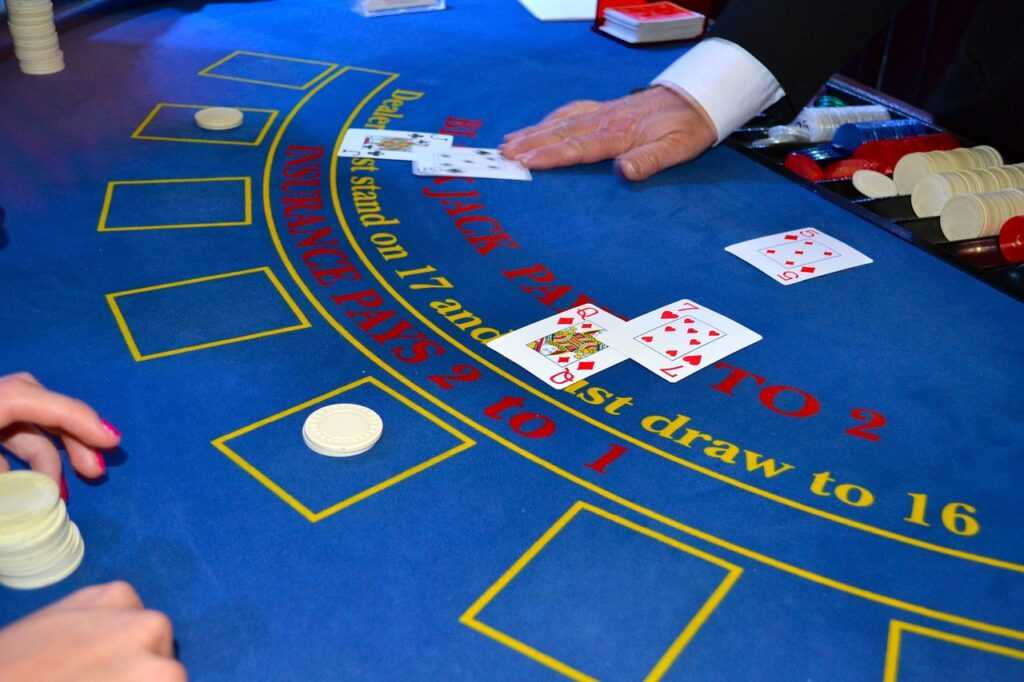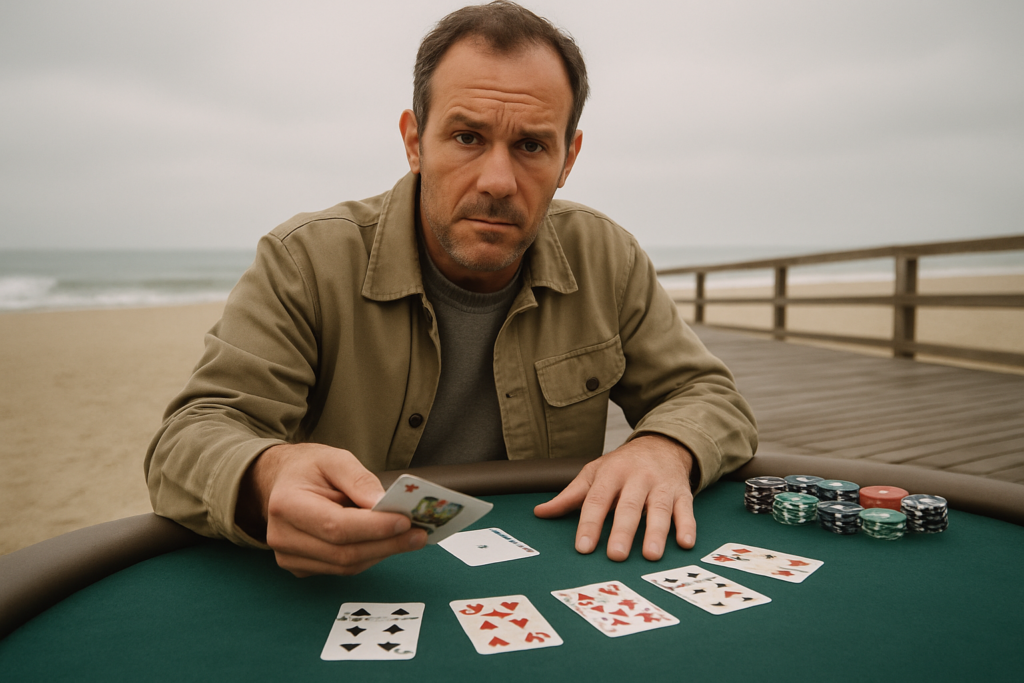The Importance of Strategy in Blackjack
Effective strategy in blackjack increases the likelihood of winning. While luck plays a role, strategic decisions often determine a player’s success. Many players underestimate the impact of strategy, relying solely on instincts that lead to costly mistakes.
Strategic play involves knowing when to hit, stand, double down, or split pairs. For example, understanding the concept of “basic strategy” helps reduce the house edge, allowing players to make decisions that statistically favor their position. Adopting a well-established system empowers me to manage my hands more efficiently.
Counting cards, while often discouraged or restricted, illustrates the depth of strategic thinking possible in blackjack. Players employ this tactic to gain an advantage by tracking the ratio of high to low cards. Though complex and controversial, card counting underscores strategy’s importance in achieving a favorable outcome.
Maintaining a disciplined approach sets successful players apart. Emotional decisions and deviating from a predetermined plan lead to losses. By adhering to strategy, players can capitalize on favorable situations and minimize potential losses on less advantageous hands.
Cultivating a strategic mindset dramatically enhances one’s blackjack experience. Committing to a method and understanding the game’s mathematical aspects reduce errors and create opportunities for success.
Mistake 1: Ignoring Basic Strategy
Ignoring basic strategy in blackjack significantly reduces a player’s chance of success. Many players in casinos rely on instincts rather than using a proven method, leading to common errors. Basic strategy optimizes decisions for every hand, considering the player’s cards and the dealer’s face-up card. It minimizes the house edge, improving odds through calculated actions. For instance, hitting on 16 when the dealer shows a 7 or higher can prevent busting. Memorizing a basic strategy chart boosts decision-making and confidence.
Players often misjudge odds when neglecting this strategy. Familiarizing yourself with fundamental actions—such as when to double down or split pairs—ensures optimal play. Basic strategy charts, widely available in print and online, offer valuable guidance. Dealers typically deal hundreds of hands per hour, making strategic consistency crucial. By ignoring basic strategy, players miss out on reducing the casino’s advantage and maximizing potential winnings.
Mistake 2: Playing Insurance Bets
Playing insurance bets seems tempting when the dealer’s face-up card is an Ace. Many believe it’s a safeguard against dealer blackjack. However, statistically, taking insurance isn’t the best strategy. It serves as a side bet on whether the dealer has a ten-value card face down. The odds don’t favor the player, as the payout is usually 2:1 while the actual probability is less favorable.
Insurance bets increase the house edge in the long run. Even for skilled players, it’s challenging to benefit from insurance consistently. When offered, declining the insurance is often the wiser choice. The house edge already demands calculated risk, and unnecessary insurance can erode potential winnings over time.
A crucial part of avoiding this mistake is understanding game dynamics. While insurance might appear as a protective measure, it’s essentially a distinct wager with odds stacked against players. By choosing not to indulge in insurance bets, you’re protecting your bankroll, leading to a more favorable blackjack session.
Mistake 3: Mismanaging Your Bankroll
Mismanaging your bankroll can severely impact your blackjack experience. Establishing a clear budget before starting your gambling session is essential. Setting aside a specific amount helps prevent unnecessary financial losses. Without this, emotional decisions may lead to spending more than intended.
Tracking my expenditures during play ensures I stay within my budget. Regularly checking how much I’ve lost or won keeps my spending under control. Detailed tracking helps in making informed decisions about when to walk away.
Adopting a strategy for bet sizing maintains discipline at the table. Consistently placing bets aligned with my bankroll size prevents significant damage when facing a losing streak. A good rule of thumb is betting no more than 1% to 5% of my total bankroll on any single hand.
Adjusting strategy according to my bankroll keeps the game enjoyable. If I’m winning, considering larger bets might make sense as long as it’s within my set limits. Conversely, if I encounter a rough patch, reducing bet sizes helps sustain playtime without depleting funds quickly.
Mistake 4: Assuming Systems Guarantee Wins
Many blackjack players fall into the trap of believing that betting systems guarantee wins. It’s essential to understand that no system, no matter how complex, can overcome the house edge. Systems like:
- Martingale
- Labouchere
- Paroli
may appear promising, but they ultimately rely only on betting patterns, not on changing the odds of the game.
Players might think increasing bets after a loss, as suggested by some systems, ensures eventual recovery. However, this strategy carries significant risks, especially with table limits, bankroll constraints, and losing streaks. Even a theoretically “winning” system collapses under the weight of these realities, as no sequence of bets changes the fundamental probability of the game.
Consistency in applying basic strategy plays a far greater role in optimizing odds than any betting system. Combining this approach with disciplined bankroll management reduces losses and maximizes potential gains. Recognizing that systems don’t alter the core mechanics of blackjack helps players avoid costly errors and focus on enhancing their strategic play.
Mistake 5: Not Understanding Table Rules

Knowing the table rules is essential for making informed decisions in blackjack. Each casino may have unique rules that affect strategy and payouts.
House Rules
House rules can vary significantly between casinos. Some tables allow doubling down on any two cards, while others restrict this option to certain hands. Understanding these differences is vital for optimizing strategies. For example, knowing whether the dealer hits on a soft 17 impacts whether I should stand or hit in certain situations. It’s crucial to familiarize myself with the specific rules of a table before playing to avoid making strategic errors.
Payout Variations
Payout variations can also impact my potential winnings. A common variation is the payout for a natural blackjack, which can be 3:2 or 6:5. Opting for a table that pays 3:2 maximizes earnings since this offers better returns for the same hand. Shortchanging myself by playing at a 6:5 payout table reduces my chances of a profitable session. By identifying and choosing tables with favorable payout structures, I enhance my odds and overall gaming experience at the casino.
Mistake 6: Playing While Distracted
Playing blackjack requires undivided attention. When players focus on other activities, like checking their phones or engaging in conversations, decision-making suffers. Maintaining awareness of the game’s flow is crucial for success. Loose attention can lead to missed opportunities, such as doubling down at the right moment or splitting pairs effectively. Distractions also increase the risk of error when keeping track of cards, especially if using advanced strategies.
Situational awareness is essential while playing. For instance, failing to notice the dealer’s face-up card due to inattentiveness can result in suboptimal moves. A clear strategy might suggest standing on 12 if the dealer shows a 4, yet distraction might lead to unnecessary hits. Commitment to the game diminishes when there’s a lack of focus, impacting potential gains and enjoyment.
Distraction management involves reducing external stimuli. Before starting a game, I make sure to silence my devices and avoid engaging in lengthy discussions while at the table. Choosing a quieter blackjack table helps maintain focus on gameplay. Prioritizing attention in these ways aids in making calculated moves, ensuring an optimal blackjack experience.
Mistake 7: Making Emotional Decisions
Keeping a clear mind is crucial in blackjack, as emotional decisions can quickly erode your strategy. In high-stakes environments, it’s common to experience anxiety or excitement, but these emotions can cloud judgment. Identifying emotional triggers helps maintain control during play. When emotions take over, players might deviate from basic strategy or increase bets impulsively, leading to unnecessary losses. By recognizing emotional cues, players can prevent these costly mistakes.
Using a consistent approach reduces the influence of emotions. Implementing set rules and sticking to a predetermined strategy safeguards against rash decisions. For example, if a losing streak causes frustration, resist the urge to chase losses with larger bets. Instead, take a break, regroup, and return with a clear focus. Practicing disciplined play enhances decision-making and guards against the volatility of emotional shifts.
Mistake 8: Not Knowing When to Leave
- Understanding when to leave the blackjack table is crucial for managing one’s bankroll effectively. Players often get caught up in the excitement of the game, leading to prolonged sessions that can drain their funds. Recognizing the right moment to walk away ensures protection against unnecessary losses and preserves winnings.
- One guidepost for leaving is setting predetermined limits. Establishing a win limit, such as doubling your starting bankroll, helps lock in profits. A loss limit also safeguards against rapid financial depletion. Evaluating these limits regularly during play aids in making informed decisions about whether to continue or call it a day.
- Monitoring emotional state is vital for determining when to leave. If frustration or fatigue sets in, decision-making abilities often decline. Taking breaks or ending the session prevents these emotions from impacting strategic decisions negatively.
- Finally, assessing the playing environment can influence the decision to leave. If the table dynamics change unfavorably—perhaps due to a shift in pace or increased distractions—it might be time to step away. Staying attuned to both internal and external cues helps maintain control over the gaming experience.
Mistake 9: Overvaluing Face Cards
Face cards (jacks, queens, kings) are enticing because each one has a value of ten. Many players incorrectly assume that these cards guarantee an advantage. If overvaluation of face cards occurs, players might overestimate their hand strength and make risky decisions. For example, holding a hand value of 14 with a face card can tempt a player to stand when hitting would be more strategic based on the dealer’s up-card. Overestimation can skew perception, leading to a miscalculation of the odds.
Players tend to overbid when multiple face cards are in hand, falsely believing they are more likely to win. In blackjack, each card has an equal probability of appearing, so focusing solely on face cards leads to an incomplete understanding of potential outcomes. Rather than overemphasizing face cards, it’s vital to consider the complete hand and the dealer’s visible card to make informed choices about hitting or standing.
Avoid the misconception that face cards will always result in favorable hands or outcomes. Prioritize strategy and understanding card distributions to improve decision-making and minimize the risks posed by overvaluing face cards.
Mistake 10: Skipping Practice
Practicing is crucial for refining blackjack skills. Many players underestimate the value of practice, which can significantly affect their game performance. Engaging in practice sessions helps players familiarize themselves with basic strategy and decision-making processes without the pressure of real stakes.
Using online simulators is an effective way to practice. Players can simulate various scenarios, gaining confidence and knowledge in a controlled environment. Practice allows players to test different strategies, such as knowing when to hit or stand based on hand values.
Regular practice sessions improve reaction time and strategic thinking. Players learn to make quick, informed decisions that enhance their overall blackjack experience. Ignoring practice often results in costly mistakes during live play, as players might gamble on instincts rather than strategy.
Repetition fosters mastery. By repeatedly applying basic strategy in practice, players become more adept at minimizing the house edge. Players also develop a sharper understanding of when to double down or split pairs, crucial actions in blackjack.
Commitment to practice translates to better outcomes. By preparing diligently, players can avoid common pitfalls, ensuring they’re ready when they sit at a casino table. Practice sharpens skills, instills discipline, and, ultimately, contributes to a successful blackjack journey.



 Lead Content Strategist
Willie Maxson is the Lead Content Strategist at Dice Gamblers Deal, where he leverages his extensive knowledge of gambling and content creation to produce educational and engaging material for players at all skill levels. Willie’s background in journalism, combined with a deep understanding of casino games, allows him to break down complex gambling strategies into clear, digestible content that helps readers master the art of winning at the tables. From detailed blackjack strategies to the best slot machine tips, Willie creates resources that provide valuable insights into the world of gambling. His approach is centered around making learning fun and accessible, with content that’s as enjoyable as it is informative. He works closely with the team to ensure that every article, guide, and update on the website is of the highest quality, empowering players to make more informed decisions and ultimately increase their winnings.
Lead Content Strategist
Willie Maxson is the Lead Content Strategist at Dice Gamblers Deal, where he leverages his extensive knowledge of gambling and content creation to produce educational and engaging material for players at all skill levels. Willie’s background in journalism, combined with a deep understanding of casino games, allows him to break down complex gambling strategies into clear, digestible content that helps readers master the art of winning at the tables. From detailed blackjack strategies to the best slot machine tips, Willie creates resources that provide valuable insights into the world of gambling. His approach is centered around making learning fun and accessible, with content that’s as enjoyable as it is informative. He works closely with the team to ensure that every article, guide, and update on the website is of the highest quality, empowering players to make more informed decisions and ultimately increase their winnings.
